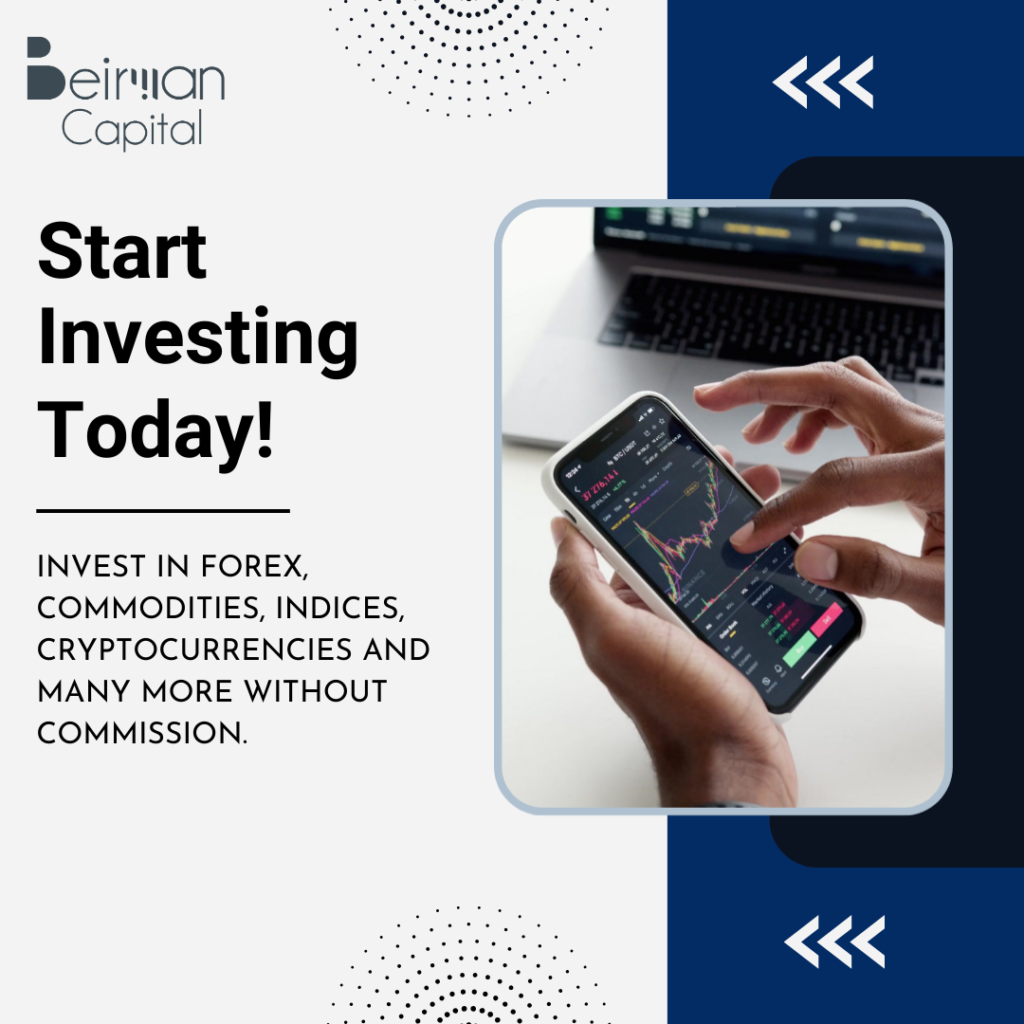Offshore Brokers: No PDT Rule Brokers & Offshore Brokerage Accounts
Offshore brokers operate outside the boundaries of the traders’ home country. Discover the pros and cons of opening an account with them.
Table of Contents
Want to Trade in International Assets but Don’t Know Which Platform to Go For? Well, offshore brokers are the best for trading in international and foreign assets.Wait, you don’t know what an offshore trading platform is?
Don’t worry. In this article, we will discuss these types of forex broker platforms and find out whether they are ideal for opening an account with. We’ll also highlight offshore brokers accepting US clients, brokers without the PDT rule, and some of the best offshore forex brokers available today.
What Are Offshore Brokers?
Offshore brokers are financial institutions that operate outside the boundaries of the trader’s home country. Essentially, offshore broker means foreign or international broker.
On such a platform, a trader can invest in forex, stocks, commodities, indices, cryptocurrencies, and other financial assets. Generally, offshore stock brokers are situated in countries where the financial regulations are relaxed so they can operate in a more flexible environment. These offshore trading companies cater to global clients and often provide access to unregulated forex brokers for US traders looking for better trading conditions.
When trading in foreign exchange or global assets, it is ideal to go with no PDT rule, especially if you’re an active day trader. These platforms provide access to unregulated brokers that accept US clients with high leverage and more freedom. Whether you’re looking for foreign forex brokers or platforms offering offshore stock brokerage accounts, such brokers give you the flexibility to trade globally.
Are They Illegal?
No, they are not illegal; they are generally registered under top financial authorities. Some may even be CFTC-approved brokers or hold licenses from respected global regulators. They serve in multiple countries and may hold multiple licenses, making them a secure option. While many offshore brokers are unregulated forex brokers, it’s essential to verify their credibility.
However, even after that, many people have trust issues. And that is because some firms take advantage of offshore flexibility and use the platform to conduct illicit activity. That’s why it’s important to choose from the best offshore brokers for US clients and avoid unknown names from the unregulated forex brokers list.
Why You Should Choose an Offshore Forex Broker
An offshore trading platform can be better than an onshore broker in many ways. Here’s how such brokers stand out:
1. Global Exposure
With onshore brokers, trading instruments are limited. These brokers offer regional and a few major international assets. However, offshore brokerage accounts provide access to global forex currencies, ETFs, stocks, and crypto. They also often support foreign currency brokers, giving you a wide range of opportunities for portfolio diversification.
2. Flexibility
Onshore brokers are tightly managed by regional institutions. They operate under rigid guidelines and are subject to the Pattern Day Trader Rule (PDT rule). However, most are no PDT rule brokers. These brokers with no pattern day trader rule allow traders to execute multiple trades a day without worrying about limitations—perfect for those looking for SureTrader alternatives or best brokers for day traders.
Platforms such as Pro4 Trading or other offshore trading brokers allow traders from the U.S. and other regions to bypass the PDT restriction. So if you’re wondering how to avoid the PDT rule, trading with a broker offshore is your answer.
3. High Leverage
While onshore brokers might offer up to 1:100 leverage, many offshore brokers provide much higher leverage sometimes up to 1:2000. That’s why best unregulated forex brokers for US clients are growing in popularity, offering more flexibility for aggressive strategies.
4. Robust Security
While some unregulated forex brokers can be risky, many offshore forex brokers accepting US clients are highly secure. They implement strong safety protocols, encryption, client fund segregation, and advanced risk management tools to ensure a smooth trading experience.
5. Tax Benefits
Many offshore trading accounts are based in jurisdictions where capital gains tax is low or even exempt. For U.S. clients, this might not eliminate all tax responsibilities, but the right offshore broker could significantly reduce tax burdens depending on the setup.
6. 24/7 Support
Since offshore brokers serve a global audience, they must offer multilingual, round-the-clock customer support—something that is limited on many regional platforms. This is especially important for offshore forex brokers that accept US clients, who may need help in different time zones.
Limitations of Offshore Trading Brokers
Offshore brokerage comes with some limitations and drawbacks too. So if you are thinking of opening an account with such a platform, first have a look at them:
Regulatory Concerns
Some brokers register under unknown authorities or use fake credentials. That’s why you must avoid shady unregulated brokers and opt for those that are trusted and reviewed in communities like Reddit’s best offshore brokers for day trading.
Also, some of the most restrictive countries (like the U.S.) have limited access to accepting US clients, and many regulated brokers like Pepperstone or Fxify do not accept US clients. Always verify a platform before signing up.

High Trading Fees
Some foreign exchange brokers charge fixed fees in USD, which can be expensive for traders from countries with weaker currencies. Others may charge for education, swap, or trading bots raising the total cost. Always check the fee structure, especially if the platform is one of the best offshore forex brokers that accept US clients.
High Minimum Deposits
Many offshore brokers require minimum deposits between $100 to $1,000. This might be too much for passive or beginner traders. If you’re looking for forex brokers with no minimum deposit, search wisely—many unregulated or NFA forex brokers cater to smaller traders.
Bottom Line
Offshore brokers are great options to start trading in the global financial markets. A well-regulated offshore trading account offers freedom, diverse instruments, and even tax advantages. Whether you’re looking for best unregulated forex brokers, brokers with no PDT rule, or offshore stock brokers, you’ll find a platform that meets your needs.
Yes, there are a few drawbacks. But the benefits far outweigh the limitations—especially when you choose trusted names.
Beirman Capital is also a leading offshore broker that serves global clients. We even provide demo account options to our clients so they can try and test our services. Open an account with us and move a step toward safe and secure trading.
FAQ
- Are offshore brokers illegal?
No, they are not illegal; many are registered under top financial authorities. - Are offshore brokers legal to use?
Yes, they are legal to use. Traders can consider them for trading diverse financial assets globally. - Are offshore brokers safe?
Yes, its safe when they have the proper license, solid reputation, and a large customer base. - Can US clients trade binary options with offshore brokers?
No, US clients cannot trade binary options with brokers. U.S. traders need to open accounts with regulated U.S. exchanges for binary options. - How to avoid the pdt rule ?
By opening a cash account instead of a margin account for avoid the PDT rule . With a cash account, there is no limit to the number of day trades as long as you have enough settled cash to pay for your purchases.
Get Complete Forex Trading Assistance



